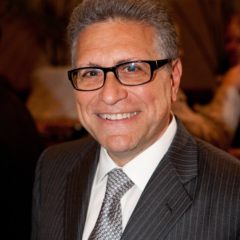Studies have shown that practicing gratitude will make you a stronger leader. Gratitude will affect the various relationships between you and your constituents. It will cultivate a culture of mutual respect which will maintain a balance between the people you lead and your expected results. And when you practice gratitude, you will inspire gratitude and all its personal benefits among those you lead. It will spread infectiously to those who experience it.
I wonder, though, if the prime reason to practice gratitude is that it cultivates leadership humility. Practicing gratitude makes you recognize how much other people have helped you achieve success. Every leader must realize where their mandate to lead came from, and practice their leadership, balanced with a healthy dose of humility. This should really come as no surprise to us as members of the Jewish faith. This concept of gratitude is ingrained in us from the earliest age and is a tradition which we continue to practice throughout our lifetimes.
There is a prayer we Jews recite at the very moment we wake up, before we do or say anything else:
מוֹדֶה אֲנִי לְפָנֶיךָ מלך חַי וְקַיָּם שֶהֶחֱזַרְתָּ בִּי נִשְׁמָתִי בְחֶמְלָה, רַבָּה אֱמוּנָתֶךָ
Modeh ani l’fanecha, melech chai v’kayam, shehechezarta bi nishmati, b’chemla raba emunatecha
“I gratefully thank You, living and eternal Ruler, for You have graciously returned my soul within me with compassion. Great is Your faithfulness.”
While most of us groan when the alarm goes off in the morning, we should appreciate the amazing opportunities that will come our way, and for that reason alone should recite the prayer. Imagine we begin every day with “Thanks.” A truly amazing way to start our day.
But Modeh Ani is about much more than just gratitude. The Hebrew word Modeh or its variation Todah can mean “thanks,” but it can also mean “to admit.” When we say, “thank you,” we are making an admission. We admit that we needed someone else’s help. You passed me the salt, helped me in business, repaired my plumbing, or raised me as a child. To say, “thank you,” means to admit that “I couldn’t have done it without you.” In the end, when we express our gratitude, it means that we recognize our dependence on one another. And though dependence is never easy to admit, it facilitates harmony and bonding.
As leaders in our Jewish communities, we have to appreciate that we have been afforded the opportunity to lead. We have seen all too often the results of leaders who are so arrogant can never admit to their errors and shortcomings. They are most often doomed to fail. Humility will make you a better leader and more appreciated by those who work with you. You will be more approachable, and it will lead to better outcomes, both for the leaders and their followers. Practicing gratitude, your leadership will result in positive results, benefitting all our communities. Embrace gratitude and humility. And start your day with Modeh Ani. You’ll be thankful for it.
Mark Goldenberg

Get to know the author
WHP Dr. Mark Goldenberg, DDS (LA/Endeavor) is a full-time pediatric dentist in Beverly Hills, CA. He is also interested in music and the cantorial arts.

